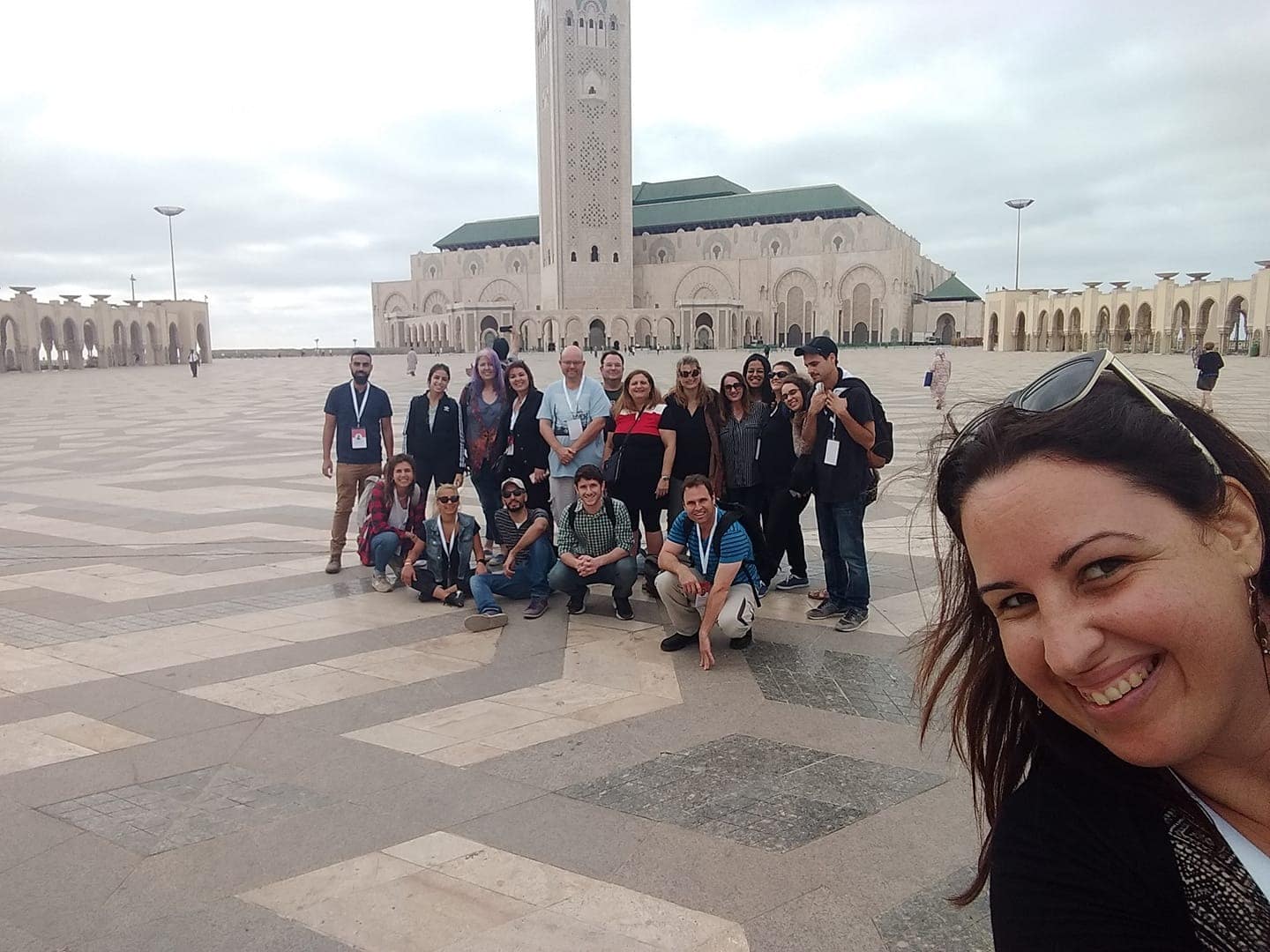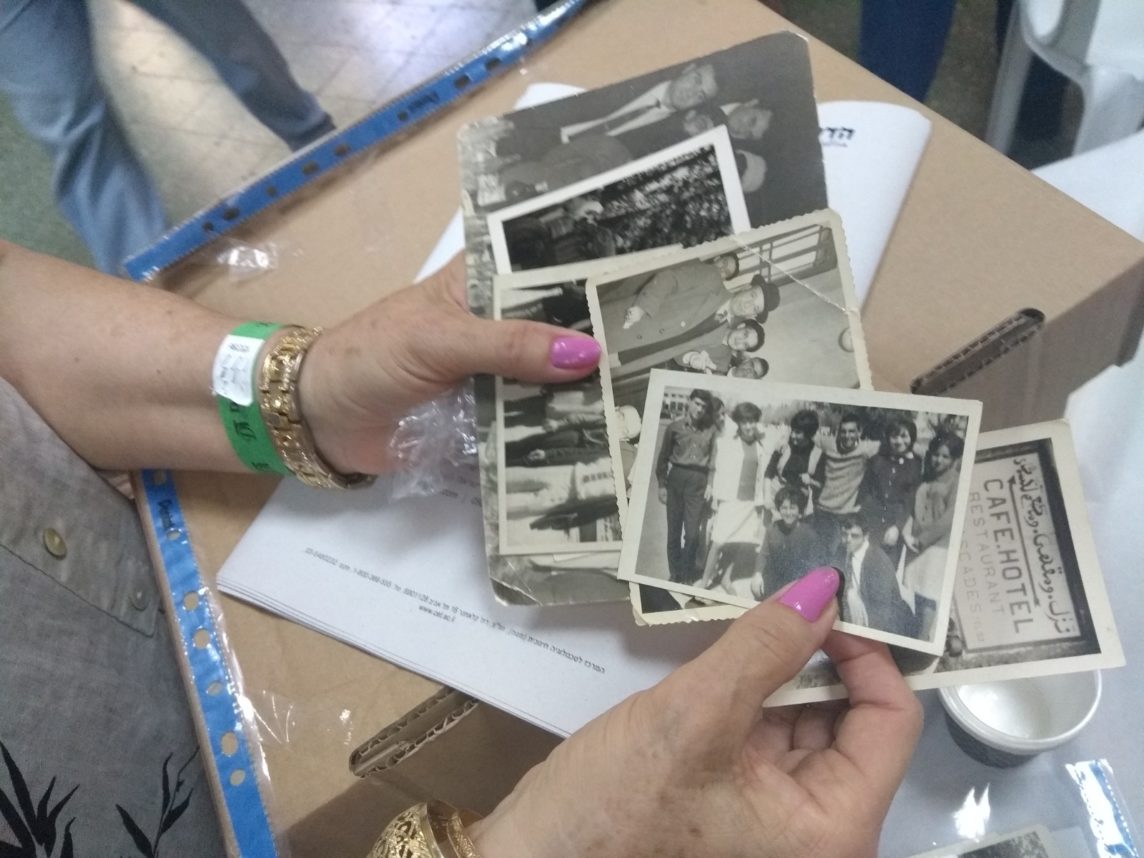
When Einat Levi was 4 years old, her mother was hospitalized for several months. Sent to live with her aunt, Levi was filled with sadness and longing for her mother and would spend hours drawing pictures of her family together. Decades later, Levi still is fascinated by family portraits and they have become a key part of her work in preserving the history of Morocco’s Jewish community. The longing she had for her mother as a child planted the seeds for her to undertake her first roots trip to Morocco in 2013. “Longing is not about getting stuck in the past,” she said. “Instead, it is the most powerful engine I know for renewal.”
Upon her return, Levi posted photos online of the grave of a distant relative who had been murdered along with five other Jews by a group of Arabs in 1954. The photos wound up being seen by the victim’s daughter. The gratitude the woman felt at seeing her father’s grave for the first time in more than half a century spurred Levi to launch her project, Connection to Morocco, which aims to link people to Jewish Morocco through a number of channels.
One of those is through trips to the North African country. Most Israeli tourists visit Morocco on organized tours. Levi encourages people to travel independently, claiming that much of Morocco’s magic is missed on group tours where every destination is predetermined. To that end, she helps people construct their own unique visits, doing everything from formulating itineraries and finding drivers, to obtaining visas and often accompanying them as a guide.
“In order to understand the story of Jewish Morocco, you first need to understand the story of Morocco.”
She also organizes study tours as well as documenting Jewish heritage sites with 360-degree footage. But the soul of her work, she says, is operating a network of virtual communities of expat Moroccan Jews from all over the world.
There are 12 such online communities representing people from 12 Moroccan cities. After Jews began leaving Morocco, Levi said, they entered what she calls a period of “forgetfulness and invisibility,” where they relegated their past history and heritage to the background as they embraced new identities, either as Israelis, Canadians, French or others.

Her initiative, she said, has helped Moroccans regain their past by sharing memories, photos and documents. She also is a researcher at the Mitvim think tank, specializing in Israeli-Moroccan relations, and has become something of an unofficial Israeli ambassador to Morocco. While Morocco and Israel don’t share diplomatic relations, they share warm civic ties. “In order to understand the story of Jewish Morocco, you first need to understand the story of Morocco,” she said.
Nevertheless, she doesn’t hold out much hope that a peace deal, like the one Israel struck with the United Arab Emirates, is in the offing anytime soon, despite speculation to the contrary. She said Moroccans love and welcome Israeli tourists. They view them as having returned to their homeland — “even if they’re Ashkenazi.” However, that doesn’t negate a deep-seated identification with the Palestinian cause, so a normalization accord with Israel would be unlikely without Palestinian statehood, she said.






















 More news and opinions than at a Shabbat dinner, right in your inbox.
More news and opinions than at a Shabbat dinner, right in your inbox.